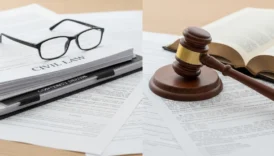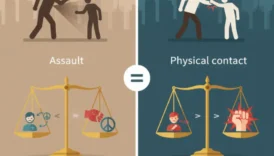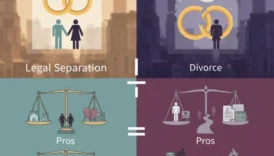Deposition vs Interrogatories: Legal Discovery Tools

In the discovery phase of litigation, attorneys use various methods to gather information, clarify facts, and prepare for trial. Among the most common tools are depositions and interrogatories. While both aim to uncover evidence, they operate differently. Depositions involve in-person or recorded testimony under oath, whereas interrogatories are written questions that must be answered in writing. Understanding how these discovery tools work—and how they differ—is essential for anyone involved in a lawsuit.
What Is a Deposition?
A deposition is a legal proceeding where a witness or party to a lawsuit provides sworn testimony outside of the courtroom, typically during the pre-trial discovery phase. Depositions are an essential tool for gathering information, clarifying facts, and assessing the strength of a case before it reaches trial. Although they take place outside of the courtroom, depositions carry the same weight as in-court testimony because the witness is placed under oath.
Key Characteristics of a Deposition
- Sworn Testimony: The deponent (the person being questioned) is sworn in by a court reporter or officer authorized to administer oaths. Their statements are made under penalty of perjury.
- Question-and-Answer Format: Attorneys for both sides have the opportunity to ask questions. The opposing party’s lawyer may cross-examine the witness during the session.
- Recorded Proceedings: A deposition is usually recorded by a court reporter and may also be video recorded. The transcript can later be used at trial.
- Broad Scope: Questions may extend beyond what is strictly admissible in trial. The goal is to gather as much relevant information as possible, even if not all of it is ultimately used.
Purpose of a Deposition
Depositions serve multiple purposes:
- Fact-Finding: They allow attorneys to uncover details not available through documents alone.
- Preserving Testimony: If a witness cannot appear at trial, deposition testimony can be read into the record.
- Assessing Credibility: Lawyers use depositions to evaluate how a witness might perform under questioning at trial.
- Narrowing Issues: By clarifying facts, depositions help streamline trial preparation and avoid surprises.
Example Scenario
Consider a personal injury lawsuit. The plaintiff claims they were injured in a car accident. During the deposition, the defendant’s attorney may ask the plaintiff detailed questions about their injuries, medical history, and the events leading to the accident. These answers help the defense build their strategy and may even influence whether the case settles before trial.
Why Depositions Matter
Depositions are powerful because they put witnesses on record long before a trial begins. If a witness changes their story later, attorneys can use the deposition transcript to challenge credibility. This makes depositions a cornerstone of the discovery process and a crucial tool for both sides in litigation.
How Depositions Work in Practice
Depositions follow a structured process, even though they occur outside the courtroom. They are governed by strict procedural rules to ensure fairness and reliability. Understanding how they work in practice helps parties prepare and appreciate their importance in shaping the outcome of a case.
The Setting
Depositions usually take place in a lawyer’s office, a conference room, or occasionally through remote video platforms. Present are:
- The deponent (the witness or party being questioned).
- Attorneys for both sides.
- A court reporter who administers the oath and records everything said.
- Sometimes, a videographer who captures the deposition on video.
The Process Step by Step
- Swearing In the Witness
The court reporter places the deponent under oath, making their testimony legally binding. - Questioning by Attorneys
- The attorney who requested the deposition begins with direct questions.
- The opposing attorney can cross-examine, clarify, or object to certain questions.
- Although objections can be made, most questions must still be answered, unless they involve privileged information.
- Objections
Unlike trial, where objections may halt certain questions, deposition objections are limited. Attorneys typically state their objection on the record, but the witness still answers. The judge later decides if the answer can be used at trial. - Transcript and Record
The court reporter prepares a written transcript of the entire proceeding. This transcript can be used in court to impeach a witness if their trial testimony differs from what they said in the deposition.
Example of Practical Use
Suppose in a medical malpractice case, the plaintiff’s attorney deposes the defendant doctor. Questions may cover the doctor’s training, decision-making process, and treatment provided. The transcript not only provides evidence but also allows the attorney to gauge how the doctor might present in front of a jury.
Key Advantages in Practice
- Flexibility: Depositions are conducted outside the courtroom, allowing more time for questioning.
- Detail-Oriented: Attorneys can explore topics in depth, beyond the limited scope of trial questions.
- Preparation Tool: They allow each side to test arguments and evaluate witness credibility long before trial.
Key Takeaway
Depositions in practice are strategic interviews under oath. While less formal than trial, they carry the same legal weight and often determine whether a case settles or proceeds to court.
Advantages and Disadvantages of Depositions
Depositions are among the most powerful discovery tools in litigation, but like any legal mechanism, they come with both strengths and drawbacks. Attorneys must weigh these carefully when deciding whether to conduct depositions and how extensively to use them.
Advantages of Depositions
- Comprehensive Information Gathering
- Depositions allow attorneys to ask open-ended questions and follow up in real time.
- Unlike interrogatories, which are limited to written answers, depositions provide spontaneous testimony that can reveal unexpected details.
- Assessing Credibility
- Observing a witness in person gives lawyers insight into body language, tone, and demeanor.
- This helps attorneys evaluate how a witness might perform at trial before they ever set foot in the courtroom.
- Preserving Testimony
- Depositions can preserve the testimony of witnesses who may later become unavailable due to illness, relocation, or death.
- In such cases, transcripts or recordings can be presented at trial.
- Strategic Advantage
- Depositions put witnesses on record early. If a witness changes their story at trial, the deposition transcript can be used to impeach credibility.
- Case Evaluation Tool
- Attorneys often use depositions to test the strength of their case. Strong testimony may encourage settlement, while weak testimony may push a party to pursue trial.
Disadvantages of Depositions
- High Cost
- Depositions are expensive. Costs include attorneys’ time, court reporters, videographers, and transcripts.
- Complex cases with multiple depositions can quickly escalate into tens of thousands of dollars.
- Time-Consuming
- Depositions may last hours or even days, especially in complicated cases.
- Scheduling witnesses, attorneys, and court reporters adds logistical challenges.
- Stressful for Witnesses
- Being questioned under oath can be intimidating, particularly for non-expert witnesses unfamiliar with legal proceedings.
- Nervous or unprepared witnesses may unintentionally harm their side’s case.
- Risk of Overexposure
- Overusing depositions can give the opposing side too much insight into your strategy.
- Lawyers must carefully balance thorough questioning with the need to protect their trial approach.
Example Scenario
In a personal injury case, the plaintiff’s deposition may provide critical evidence about the accident and injuries. However, if the plaintiff appears inconsistent or unconvincing, their testimony could weaken the case instead of strengthening it.
Key Takeaway
Depositions are a double-edged sword: they offer unmatched opportunities to gather evidence and evaluate witnesses but can be costly, time-intensive, and sometimes risky. Effective attorneys know when and how to leverage depositions to maximize benefits while minimizing drawbacks.
What Are Interrogatories?
Interrogatories are a form of written discovery used in civil litigation. They consist of a series of written questions that one party serves on the other, requiring answers to be provided in writing and under oath. While less dynamic than depositions, interrogatories remain one of the most widely used discovery tools because they are efficient, inexpensive, and effective in gathering basic facts.
Key Characteristics of Interrogatories
- Written Format: Unlike oral depositions, interrogatories must be answered in writing.
- Under Oath: Responses are legally binding; false answers can result in perjury charges.
- Time-Bound: Courts usually set strict deadlines—often 30 days—for responses.
- Number Limits: Most jurisdictions limit the number of interrogatories that can be served (commonly 25 unless the court allows more).
- Relevance Requirement: Questions must relate to the claims, defenses, or issues in dispute, though they can be broader than what is strictly admissible at trial.
Purpose of Interrogatories
- Basic Fact Gathering – Parties use interrogatories to clarify who the witnesses are, what evidence exists, and what legal theories the other side plans to pursue.
- Streamlining the Case – Interrogatories help narrow issues by forcing the opposing party to state their position clearly.
- Cost-Effective Discovery – They provide a low-cost alternative to depositions, especially in cases with limited budgets.
- Establishing Admissions – Carefully drafted interrogatories can lock the opposing party into specific statements that may later be used at trial.
Example of Interrogatories in Action
In an employment discrimination case, the plaintiff may serve interrogatories asking the employer to:
- Identify all supervisors involved in the termination decision.
- Provide the reasons given for termination.
- List other employees terminated in the past five years for similar reasons.
The employer must respond truthfully and within the allotted time frame, creating a record that can be used in later stages of the case.
Why Interrogatories Matter
Interrogatories are particularly useful in gathering structured, factual information. They may not capture the nuances of live testimony, but they help create a factual framework upon which other discovery tools—like depositions—can build.
In short: Interrogatories are about clarity, efficiency, and written accountability. They provide parties with a cost-effective way to obtain essential facts and limit disputes before trial.
How Interrogatories Work in Practice
While the concept of interrogatories may sound simple—written questions answered in writing—the way they operate in practice involves a series of structured steps and strategic considerations. Attorneys use them not only to gather facts but also to shape the direction of litigation.
The Process Step by Step
- Drafting the Interrogatories
- Each side carefully drafts questions designed to extract useful information.
- Questions must be relevant to the case, though they can cover a broad range of topics such as witnesses, facts, damages, or defenses.
- Many jurisdictions impose a limit on the number of interrogatories (commonly 25), requiring attorneys to be selective and strategic.
- Serving the Interrogatories
- Interrogatories are formally served on the opposing party, usually through the court’s procedures or directly via attorneys.
- Answering the Interrogatories
- The receiving party must provide written responses, signed under oath.
- Responses must be complete and accurate; evasive or incomplete answers may result in motions to compel.
- Objections
- The responding party may object to certain questions if they are vague, overly burdensome, irrelevant, or seek privileged information (such as attorney-client communications).
- Courts often step in to decide whether the objections are valid.
- Use of Answers
- Responses become part of the case record and can be used to support motions, guide depositions, or even be read at trial if the party contradicts their earlier answers.
Example in Practice
In a product liability case, a plaintiff injured by a defective appliance may serve interrogatories asking the manufacturer to:
- Identify all models of the product produced in the last five years.
- Disclose prior complaints or lawsuits involving similar defects.
- State whether safety testing was performed and provide details of those tests.
The answers give the plaintiff’s attorney a roadmap for further discovery, such as which witnesses to depose or which documents to request.
Practical Benefits
- Efficiency: Interrogatories can cover many issues quickly without the time and expense of depositions.
- Clarity: They force parties to put their claims and defenses in writing, reducing ambiguity.
- Strategic Planning: Answers help attorneys refine strategies, anticipate arguments, and prepare for trial.
Key Takeaway
In practice, interrogatories are more than just written questions—they are strategic tools that can clarify disputes, uncover hidden issues, and strengthen a party’s litigation plan. While less dramatic than depositions, they are often just as influential in shaping the outcome of a case.
Advantages and Disadvantages of Interrogatories
Interrogatories are one of the most commonly used discovery tools in civil litigation. They offer significant benefits for parties seeking structured information, but they also have notable limitations that must be considered when building a discovery strategy.
Advantages of Interrogatories
- Cost-Effective
- Compared to depositions, interrogatories are inexpensive. They avoid costs like hiring court reporters, videographers, or booking hours of attorney time.
- Efficient Fact Gathering
- Interrogatories are excellent for obtaining basic factual information, such as lists of witnesses, identification of documents, or descriptions of defenses.
- They create a factual baseline that guides further discovery.
- Written Record
- Responses are provided under oath in writing, creating a permanent record.
- These responses can be used later to challenge inconsistent statements at trial.
- Time-Saving
- Because they are written, parties can answer without needing to coordinate schedules for in-person meetings.
- This makes them especially useful in cases with many parties.
- Clarifies Issues Early
- Interrogatories can force opposing parties to define their positions early in the case, narrowing disputes before trial.
Disadvantages of Interrogatories
- Limited Depth
- Written responses do not capture the nuance of live testimony. Lawyers cannot assess tone, body language, or spontaneity.
- Potentially Evasive Answers
- Parties may provide vague, incomplete, or overly technical responses that reveal little useful information.
- This often leads to follow-up motions to compel or additional discovery requests.
- Lack of Flexibility
- Unlike depositions, attorneys cannot immediately ask follow-up questions if an answer is unclear.
- This can slow down the discovery process and require additional efforts.
- Strict Limits on Number
- Courts often cap the number of interrogatories (e.g., 25), which forces attorneys to prioritize and may leave important questions unasked.
- Delay in Responses
- Because responses are typically due within 30 days, interrogatories do not provide immediate information. In fast-moving cases, this can be a disadvantage.
Example Scenario
In a workplace discrimination lawsuit, the plaintiff may ask interrogatories about company policies, names of decision-makers, and prior complaints. While these questions reveal useful context, the answers might be written in vague terms such as “We follow all applicable laws,” requiring further discovery like depositions to uncover the real details.
Key Takeaway
Interrogatories are structured, cost-effective, and efficient, but they lack the depth and adaptability of live questioning. They are best used as a starting point to frame disputes and guide more detailed discovery methods, such as depositions.
Deposition vs Interrogatories: Key Differences
Although depositions and interrogatories are both discovery tools designed to uncover information before trial, they operate very differently in practice. Understanding these differences helps lawyers decide which method best suits their case strategy.
Format and Delivery
- Depositions: Conducted in person (or via video), with live questioning under oath. Responses are spoken, recorded by a court reporter, and sometimes videotaped.
- Interrogatories: Written questions answered in writing under oath. Responses are drafted carefully, often with attorney assistance.
Depth of Information
- Depositions: Allow follow-up questions, immediate clarification, and assessment of a witness’s credibility through body language and demeanor.
- Interrogatories: Provide structured, factual information but lack flexibility. No spontaneous questioning is possible.
Cost and Time
- Depositions: Expensive and time-consuming due to attorney hours, court reporter fees, and scheduling challenges.
- Interrogatories: Relatively inexpensive and efficient, though responses may take weeks.
Strategic Use
- Depositions: Best when credibility, detail, or complex issues are central. Lawyers use them to test witnesses and preserve testimony.
- Interrogatories: Best for gathering baseline facts, identifying witnesses, and clarifying opposing parties’ positions.
Consequences of Non-Compliance
- Depositions: Refusal to answer can result in contempt of court or sanctions.
- Interrogatories: Failure to respond may lead to motions to compel and, ultimately, penalties, but usually less severe than deposition non-compliance.
Example Contrast
Imagine a construction dispute:
- An attorney may serve interrogatories to identify who worked on the project, the dates of construction, and what contracts existed.
- Later, the attorney may schedule a deposition of the site supervisor to probe details, observe credibility, and question inconsistencies in the written answers.
Key Takeaway
Depositions and interrogatories serve complementary purposes:
- Depositions = depth, credibility, and flexibility.
- Interrogatories = structure, efficiency, and clarity.
Attorneys rarely choose one exclusively; instead, they combine both tools to create a well-rounded discovery strategy.
When to Use Depositions vs Interrogatories
Attorneys rarely rely on just one discovery tool. Instead, they strategically decide when to use depositions and when to use interrogatories, depending on the complexity of the case, the type of information needed, and available resources.
When Depositions Are Best
Depositions are ideal in situations where depth, credibility, or spontaneity matter most.
- Evaluating Witness Credibility: Seeing how a witness responds under pressure provides valuable insight into how they might perform at trial.
- Complex or Technical Cases: In medical malpractice, engineering disputes, or financial fraud cases, depositions allow attorneys to ask follow-up questions that written answers could never capture.
- Preserving Key Testimony: Depositions are crucial if a witness might be unavailable for trial due to age, illness, or relocation.
- Impeachment Purposes: Depositions lock witnesses into sworn testimony, which can later be used to challenge them if they contradict themselves in court.
Example: In a personal injury case, a deposition of the treating physician allows the plaintiff’s attorney to explore not only medical records but also the doctor’s professional opinions and demeanor—something written responses cannot convey.
When Interrogatories Are Best
Interrogatories shine in cases where structured, cost-effective, and broad information gathering is needed.
- Establishing the Basics: Names of witnesses, dates, insurance details, and identification of relevant documents.
- Low-Budget Cases: For clients with limited financial resources, interrogatories offer an affordable alternative to depositions.
- Clarifying Legal Positions: Interrogatories can force opposing parties to state their defenses or claims clearly, narrowing the scope of litigation.
- Building a Roadmap: Responses often guide which depositions to schedule later.
Example: In an employment discrimination lawsuit, interrogatories may ask the employer to list supervisors involved in the termination decision and describe company policies—facts that form the foundation for later depositions.
Strategic Combination
The most effective approach often involves using both tools together:
- Start with interrogatories to establish facts, identify witnesses, and clarify positions.
- Follow up with depositions to test those facts, probe inconsistencies, and evaluate credibility.
Key Takeaway
- Use depositions when credibility, nuance, or depth of information is essential.
- Use interrogatories when cost, efficiency, and broad factual background are the priorities.
- The combination ensures a balanced discovery strategy, minimizing surprises at trial.
Role in the Discovery Process
Depositions and interrogatories are two of the most important tools in the discovery phase of litigation—the pre-trial period where both sides gather evidence, clarify facts, and prepare their strategies. Discovery is designed to prevent surprises at trial and promote fairness by ensuring both parties have access to relevant information.
The Place of Interrogatories in Discovery
Interrogatories are typically used early in the discovery process to establish foundational facts. They help attorneys:
- Identify key witnesses.
- Clarify the opposing party’s version of events.
- Obtain lists of documents or evidence that may later be requested for production.
- Narrow the legal issues by forcing the other side to state defenses or claims in writing.
Because interrogatories are relatively inexpensive and limited in number, they provide a broad overview rather than deep insights. Attorneys then decide where to dig deeper with other discovery tools.
The Place of Depositions in Discovery
Depositions usually occur after interrogatories and document production, once attorneys already have a baseline understanding of the case. Their role is to:
- Explore inconsistencies in written answers.
- Test the credibility of witnesses under questioning.
- Preserve testimony for trial.
- Clarify complex or technical issues that cannot be fully explained in writing.
Depositions often provide the most influential evidence in a case, shaping trial strategies and encouraging settlements.
How They Complement Each Other
- Step 1: Attorneys use interrogatories to gather structured, factual information.
- Step 2: They request relevant documents or records based on those answers.
- Step 3: Depositions are then conducted to probe deeper into witnesses’ knowledge and test credibility.
This layered approach ensures discovery is both comprehensive and strategic.
Example of Combined Use
In a wrongful termination case:
- Interrogatories may require the employer to list all reasons for the termination and identify individuals involved.
- Document requests may follow to obtain HR files and company policies.
- Depositions of supervisors or HR personnel then test the truth and consistency of those answers under oath.
Key Takeaway
Depositions and interrogatories serve distinct but complementary roles. Interrogatories lay the groundwork, while depositions drill into the details. Together, they form the backbone of the discovery process, ensuring both sides are fully prepared for trial or settlement.
Practical Examples in Litigation
To better understand how depositions and interrogatories function, it helps to look at real-world litigation scenarios. These examples show how each tool is applied, what information it uncovers, and how attorneys strategically use them together.
Example 1: Personal Injury Case
A plaintiff sues after being injured in a car accident.
- Interrogatories: The plaintiff sends written questions to the defendant asking for details such as insurance coverage, vehicle maintenance history, and whether the driver had consumed alcohol before the accident.
- Depositions: After reviewing the responses, the plaintiff’s attorney deposes the defendant and eyewitnesses. The deposition allows the lawyer to explore inconsistencies, such as differences between the defendant’s written answers and spoken testimony.
Example 2: Employment Discrimination Lawsuit
An employee claims wrongful termination based on gender discrimination.
- Interrogatories: The employee’s attorney asks the employer to identify decision-makers in the termination, state the company’s official reasons for firing the employee, and list other employees who were terminated in the last five years.
- Depositions: The attorney then deposes HR representatives and supervisors, pressing them on whether the reasons given in writing match internal practices and communications.
Example 3: Product Liability Case
A consumer sues a manufacturer after being injured by a defective appliance.
- Interrogatories: The plaintiff requests information on prior complaints, testing protocols, and the names of engineers involved in the design.
- Depositions: The plaintiff’s attorney later deposes those engineers to ask technical questions and assess whether the company ignored safety risks.
Example 4: Contract Dispute Between Businesses
Two companies clash over a failed joint venture.
- Interrogatories: Each side serves questions seeking details about financial records, contract modifications, and communications with third parties.
- Depositions: Executives and accountants are deposed to explain financial decisions and verify whether contractual obligations were met.
Key Insight
- Interrogatories establish the factual framework—names, dates, policies, and records.
- Depositions explore credibility, clarify complex issues, and uncover hidden weaknesses in the opposing party’s story.
Together, these tools ensure attorneys are not blindsided at trial and often lead to earlier settlements, saving time and resources for both sides.
Common Mistakes Parties Make with Discovery Tools
Even though depositions and interrogatories are standard parts of litigation, many parties—and sometimes even inexperienced attorneys—make errors that weaken their position. Recognizing these pitfalls is essential to avoid unnecessary delays, sanctions, or loss of strategic advantage.
Mistakes with Depositions
- Failing to Prepare the Witness
- Witnesses who go into a deposition without preparation may give inconsistent, vague, or damaging testimony.
- Preparation involves reviewing relevant documents, rehearsing potential questions, and understanding the importance of staying calm and concise.
- Overusing Objections
- Attorneys sometimes object too frequently during depositions, disrupting the flow and frustrating the court.
- While objections can protect privileged information, excessive objections may irritate judges and risk sanctions.
- Allowing Rambling Testimony
- A deponent who offers long, unfocused answers may reveal unnecessary details that harm their case.
- The best approach is to answer only what is asked, clearly and briefly.
- Not Using the Transcript Effectively
- Failing to compare deposition testimony with trial statements can waste one of the deposition’s most powerful tools: impeachment.
Mistakes with Interrogatories
- Asking Overly Broad or Vague Questions
- Broad questions may invite objections or vague answers.
- Precision is key: narrow questions are harder to evade and more likely to produce useful information.
- Providing Incomplete or Evasive Answers
- Some parties respond with minimal effort, but evasive answers can lead to motions to compel and court-ordered sanctions.
- Clear, truthful, and complete responses are both legally required and strategically safer.
- Exceeding the Limits
- Courts often limit interrogatories (commonly to 25). Wasting questions on irrelevant details reduces their effectiveness.
- Failing to Follow Up
- Interrogatory answers are often just a starting point. Not following up with document requests or depositions leaves valuable information unexplored.
General Discovery Mistakes
- Ignoring Deadlines: Missing deadlines for responding to interrogatories or scheduling depositions can result in penalties or weakened cases.
- Underestimating Costs: Depositions, in particular, can be expensive. Poor budgeting may force one party to cut discovery short.
- Lack of Strategy: Using discovery tools randomly instead of as part of a coherent plan can produce scattered results and miss critical information.
Depositions and interrogatories are only as effective as the strategy behind them. Preparation, precision, and follow-through are the keys to making discovery work. Avoiding these common mistakes ensures that discovery strengthens your case rather than undermines it.
Final Thoughts on Their Legal Use
Depositions and interrogatories are both indispensable parts of the discovery process, but they are not interchangeable. Each serves a unique function in preparing a case for trial or settlement, and their effectiveness often depends on how well they are used together.
Complementary Roles
- Interrogatories are best for clarifying the basics—who, what, when, and where. They provide structured, written answers that help outline the issues and identify key players.
- Depositions are best for exploring the details—how and why events occurred, how credible witnesses appear, and where weaknesses lie in the other side’s case.
Together, these tools give attorneys both the big picture and the fine details needed to build a strong case.
Strategic Importance
- Lawyers rarely choose between the two; instead, they use interrogatories first to gather preliminary facts, then follow up with depositions to drill deeper.
- This layered approach prevents surprises and often encourages settlement before trial, saving time and resources for all parties involved.
Balancing Costs and Benefits
- Depositions provide powerful insights but can be costly and time-consuming.
- Interrogatories are inexpensive and efficient but limited in depth.
A balanced strategy considers both the budget of the case and the importance of the information sought.
Broader Legal Value
By ensuring that parties exchange information openly and honestly, discovery tools like depositions and interrogatories uphold the principle of fairness in litigation. They prevent trial by ambush and allow both sides to present well-prepared arguments, which strengthens confidence in the justice system as a whole.
Key Takeaway
Depositions and interrogatories should not be seen as rivals but as partners in discovery. When used strategically and responsibly, they work together to clarify disputes, uncover truth, and bring cases closer to fair resolution.
Frequently Asked Questions (FAQs)
1. What is the main difference between a deposition and interrogatories?
A deposition involves live, in-person questioning under oath, while interrogatories are written questions that must be answered in writing under oath.
2. Which is more expensive: depositions or interrogatories?
Depositions are usually far more expensive due to attorney time, court reporters, and potential videography costs, while interrogatories are relatively inexpensive.
3. Can deposition testimony be used at trial?
Yes. Deposition transcripts can be used to impeach a witness who changes their story or when a witness is unavailable for trial.
4. Are interrogatory answers legally binding?
Yes. They are given under oath, and providing false answers may constitute perjury.
5. How many interrogatories can I serve in a case?
Most jurisdictions limit interrogatories to around 25 questions unless the court grants permission for more.
6. Can a party refuse to answer certain interrogatories?
Yes, but only with valid objections such as irrelevance, overbreadth, or privilege. Courts may intervene to compel answers if objections are improper.
7. Can depositions and interrogatories be used together?
Absolutely. Interrogatories often provide a factual foundation, while depositions are used to dig deeper and evaluate credibility.
8. What happens if someone refuses to participate in a deposition?
They may face court sanctions, contempt of court charges, or even penalties like fines and imprisonment.
9. Are interrogatories faster than depositions?
Yes. Interrogatories usually have a set deadline (often 30 days), while depositions require scheduling and can last hours or days.
10. Which is better for building a case: depositions or interrogatories?
Neither is “better” in all circumstances. Interrogatories are best for broad factual information, while depositions are ideal for testing credibility and uncovering details. Together, they provide the strongest discovery strategy.






